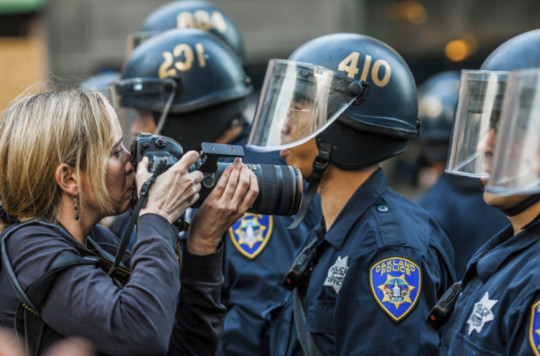Text
Take a walk with me
Hi all, I've revived the 'Blind Alley' newsletter. Separate from my other creative projects or work at Be My Eyes, Blind Alley is going to feature regular updates from the world of blindness and everything that surrounds it. I hope you enjoy.
Side note: There are more than 2 billion people in the world living with sight loss and vision impairment. Please send this to them. And if they can't afford a paid subscription, send me an email and we weill figure it out.
5 notes
·
View notes
Photo

Things are getting interesting over at Interpoint, my new essay series published by LightHouse for the Blind in SF. In just a few months we’ve published blind professors, teachers, literary critics, filmmakers, and journalists on everything from reporting on Capitol Hill to dealing with albinism in India. Read them all here.
0 notes
Photo

I interviewed Lil B about food, family, and being a human. Some of it made it into print.
0 notes
Photo

back at East Bay Express to talk about local protests in Berkeley/Oakland
3 notes
·
View notes
Photo

Veiling Oakland: city surveillance, and how the East Bay fights back, for The Brooklyn Quarterly
0 notes
Photo

Do you remember the crushing feeling? In editorial meetings; when everyone runs out of ideas. It's like the building is slowly imploding around you, and everyone's nervously looking around for answers. It's my understanding that this happens to even the best of editorial staffs, but when I was starting out I was pretty sure it was completely my fault. No one ever taught me how to pitch, and like most people, I was not initially good at it. I only learned after I left the newsroom, and suddenly had to pitch in order to pay my rent. When it becomes dire like that, the premium on ideas is lower, you realize that whatever pitch you lob, whether it's a great or terrible idea, will not define you, or make/break your career. Writers are successful more often for being consistently honest rather than for always "nailing" the story and managing perceptions. It's incredibly encouraging to see luminary writers and editors like Ann, Alexis, and others talk about transparency for writer. Most of what they're prescribing, though, is from an editor's perspective. Editors are haplessly busy people with a million things on their minds, and often teaching young writers to present themselves is pretty far down their to-do lists. Writers, on the other hand, tend to have a little more flexibility day-to-day, and that, I think, is where we lag in this transparency conversation. Writers need to check their competitiveness and be open with each other. It took me years to teach myself what someone could have sat down and told me in an hour or two -- and thats not for lack of reaching out to people. Having an established writer thoughtfully, carefully lay out how to pitch, how to present yourself, and what not to do is an invaluable experience for a new writer, and, truly can be done in the span of a brief afternoon. This is why I am such a big fan of what's happening over at Scratch Magazine / Who Pays Writers, along with a few discreet other resources for writers to share information and subtle, nuanced career advice that's not already publicly available. I hope that every writer, no matter how old or young, bears in mind the crippling feeling of not knowing how to present your ideas, and stops now and then to share your experience, support one another, and instill confidence in those who need it. We can only all benefit.
3 notes
·
View notes
Note
Hi, Will. Just wanted to write in appreciation of your NY Times piece. I'm the father of an 8 year old girl who has been blind from birth. Despite having arrived at the 'destination' of blindness from the start, she is rejecting her white cane more and more as she becomes more aware of how it identifies her as blind. Hoping she'll find peace with it eventually, but it's been a real struggle lately. Your piece helps me understand she's not the only one who confronts these feelings. Thx - Cebra
That is tough. I'm crestfallen to hear that a child who has grown up using a cane is being socialized out of it. It's almost disheartening -- not the behavior of your daughter, but the behavior of people around her. As kids become aware of the concept of comparison, they act awfully toward each other. Adults too, but much less so.
She needs to do whatever's best for her though. You can educate her and inspire her, but you can't make her do anything, even at that age. Also, I wouldn't underestimate the importance of having a good social life as a child. She is rejecting the cane right now because she wants to know what her life would be like without it. She doesn't know how much more difficult it is. I know middle-aged men, people of every age for that matter, who are in the same mindset as her. The only difference is she's been raised with it, so she naturally takes the cane's usefulness for granted. But the grass is brown on the other side; I hope it doesn't take her long to realize it. If she's really responsible and needs more social opportunities, it may be well worth looking into a dog!
Wishing you the best
1 note
·
View note
Photo

I wrote the Lives column this weekend for the New York Times Magazine. It's probably one of the more complete pieces I've put down about the struggle to accept vulnerabilities, and the dangers of self-denial.
1 note
·
View note
Photo

I reviewed a new documentary about the life and work of Elliott Smith, a subject of which, fair warning, I'm quite fond
14 notes
·
View notes
Photo

Close to home: Lauren Markham on branding low-income neighborhoods using urban garden imagery, for the New Yorker.
0 notes
Video
youtube
Serengeti - Firebird Logo
0 notes
Note
Hi Will, I am nineteen years old and last year I was diagnosed with a rare genetic disease that has caused me to lose my central vision. I've always wanted to be a Journalist but now it just feels like a hopeless dream. I started my first year at university and had to withdraw which felt like I had been delivered one big blow to the stomach and a nice bloody kick to the teeth. But anyway, I have gotten over the initial gestation period, if you'll allow me to call it that. And now I'm just look
— without the full question I’m afraid I can’t be of much help as I’d like. Please feel free to repost. But I want to respond, because it’s actually fascinating that you call [presumably, the time you took off from school] a “gestation period.”
The halting, harrowing times of recovery can completely reshape you. I’ve lived through several of them. You feel cut off from the world, because you are. And it must seem impossible to believe from where you’re standing right now, but these are actually the times where the creative sparks start to fly. Even if you’re just lying on your stomach in your room, listening to podcasts, or just thinking about stuff — some of your best ideas will come from this time. We have so many resources at our disposal today, that most of us don’t remember how to collect our thoughts in a productive way. These timeouts will give you practice.
I will tell you that I also became legally blind at age 19. Since then I have not been able to pick up a book, magazine, or newspaper and just read it. At the time, I was also in my first year of college, and had no journalistic aspirations -- so you're already ahead of me there. And you know what? That was exactly five years ago — to the day, almost -- so, much as I like to not get anyone's hopes up, I have no grounds to discourage you from giving it a shot.
That's a longwinded answer but just don’t lose hope. Go back to school and finish what you started; It’s undeniably possible and it feels good, to boot. Listen to people who are older and wiser than you. Trust that your ideas are good, and if they turn out not to be, figure out why, immediately. And don’t complain to people, because the more you do the more it becomes true. Cheers.
0 notes
Note
Hi Will, I loved your piece on google glass...have you heard about the Orca device for seeing when your bus arrives, figuring out which bills are in your wallet and checking out labels in the grocery store? I just saw a quick video about it on YouTube. It seems like it is produced abroad. Best regards, gail
Without knowing that much about devices like Orca -- I've seen the promo videos and that's about it -- my main concerns involve clunkiness. I know it's designed, aesthetically, to be unobtrusive, but often times these devices' capabilities are clunky. They are programmed to do a number of tasks, and offer little in the way of upgradability. I'm not even necessarily talking about open source technology, though it's undeniable that, the more open technology like Glass is to developers, the more people it can benefit. I'd be curious to give something like this a spin, though I know there is a learning curve with lots of AT like this and it can be time consuming to get the hang of a new implement..
0 notes
Photo

LA Review of Books: where are the women of 'Silicon Valley'?
3 notes
·
View notes
Photo

my latest for The Atlantic -- a new theory of the Google Glass backlash
0 notes

